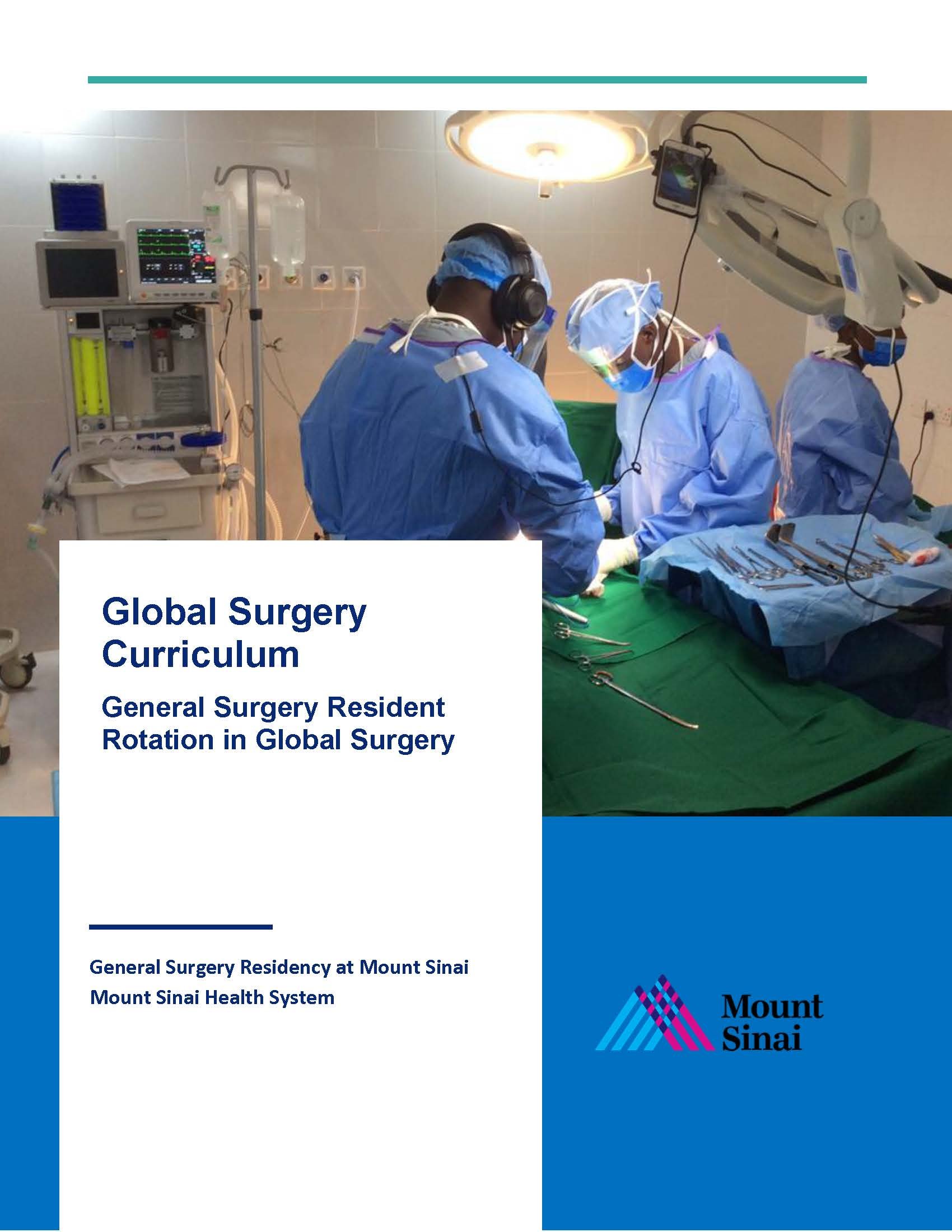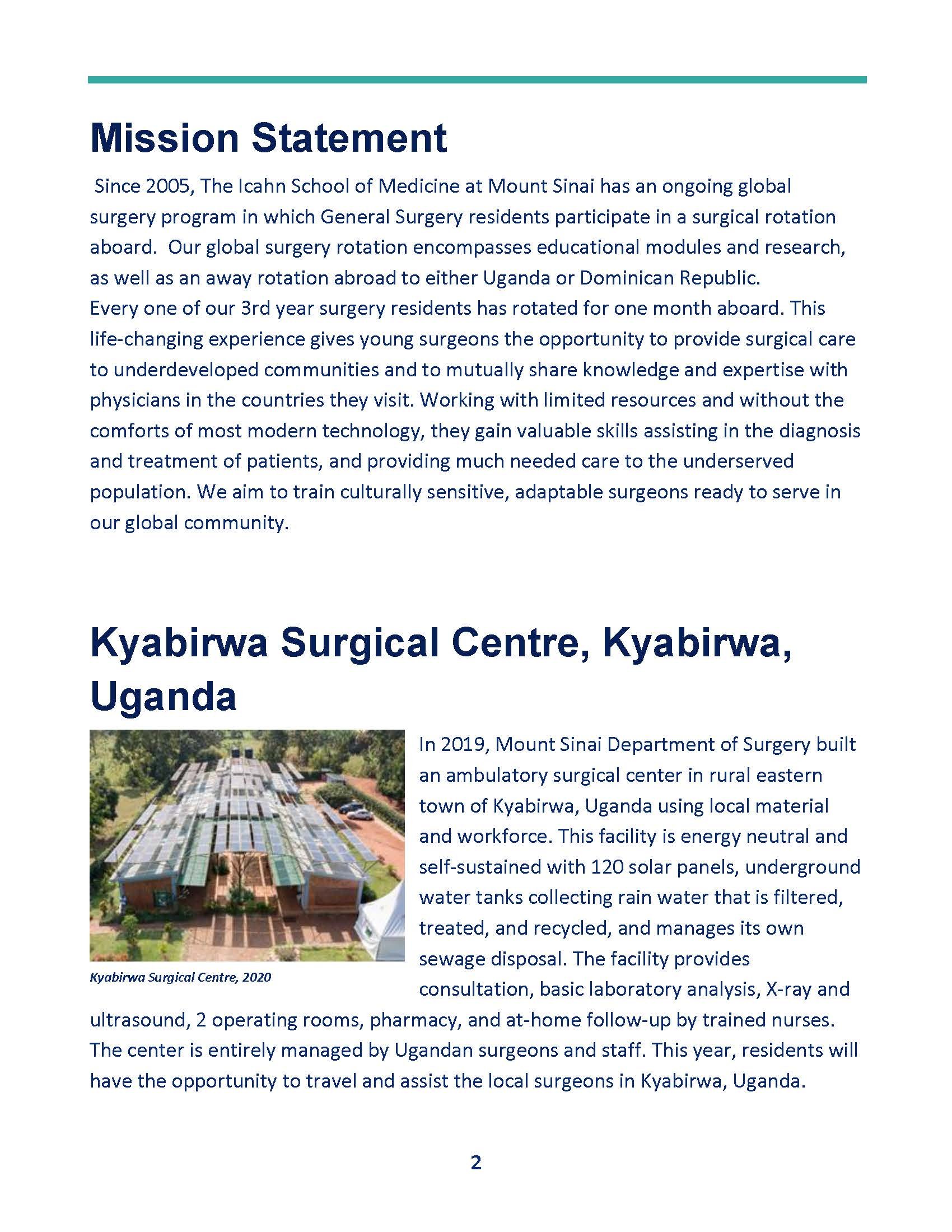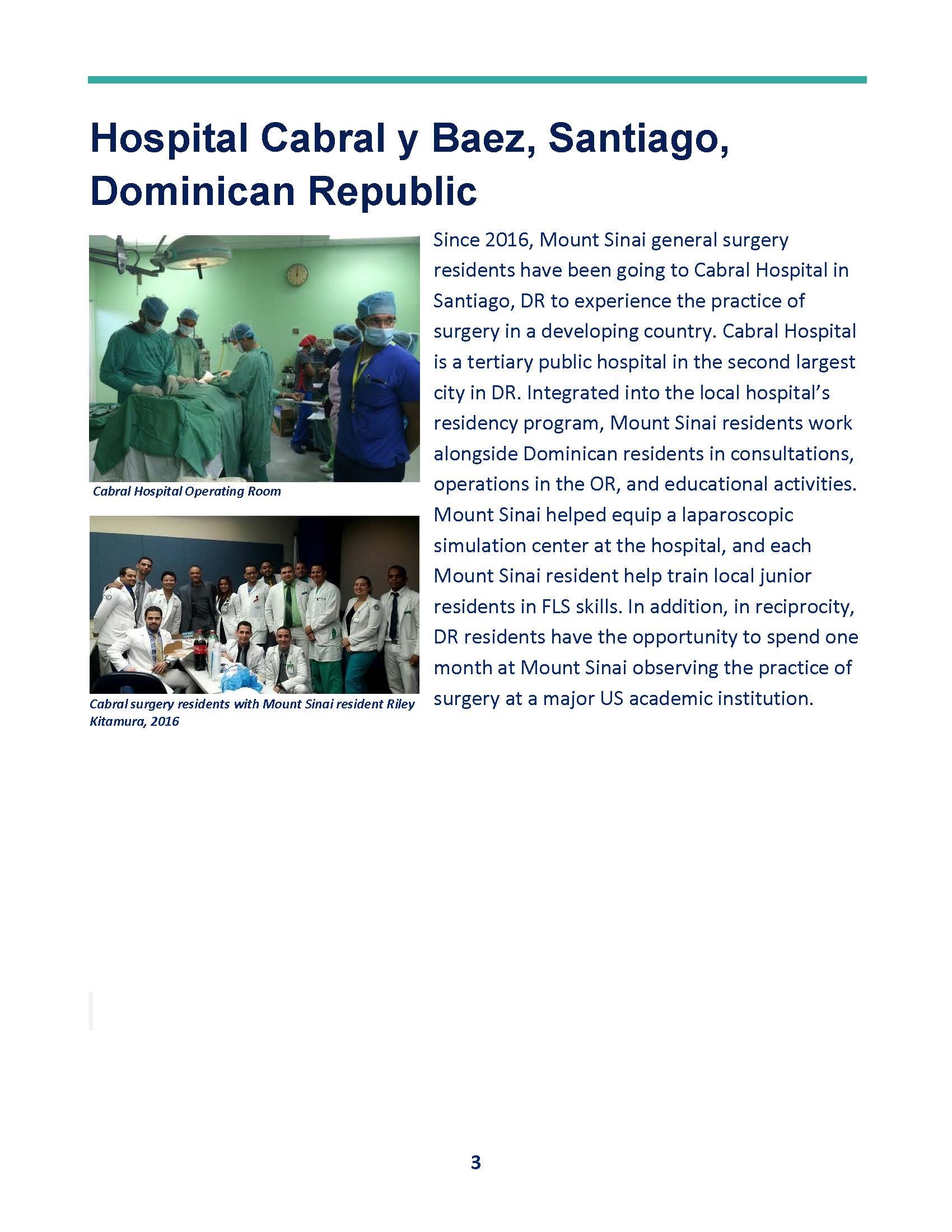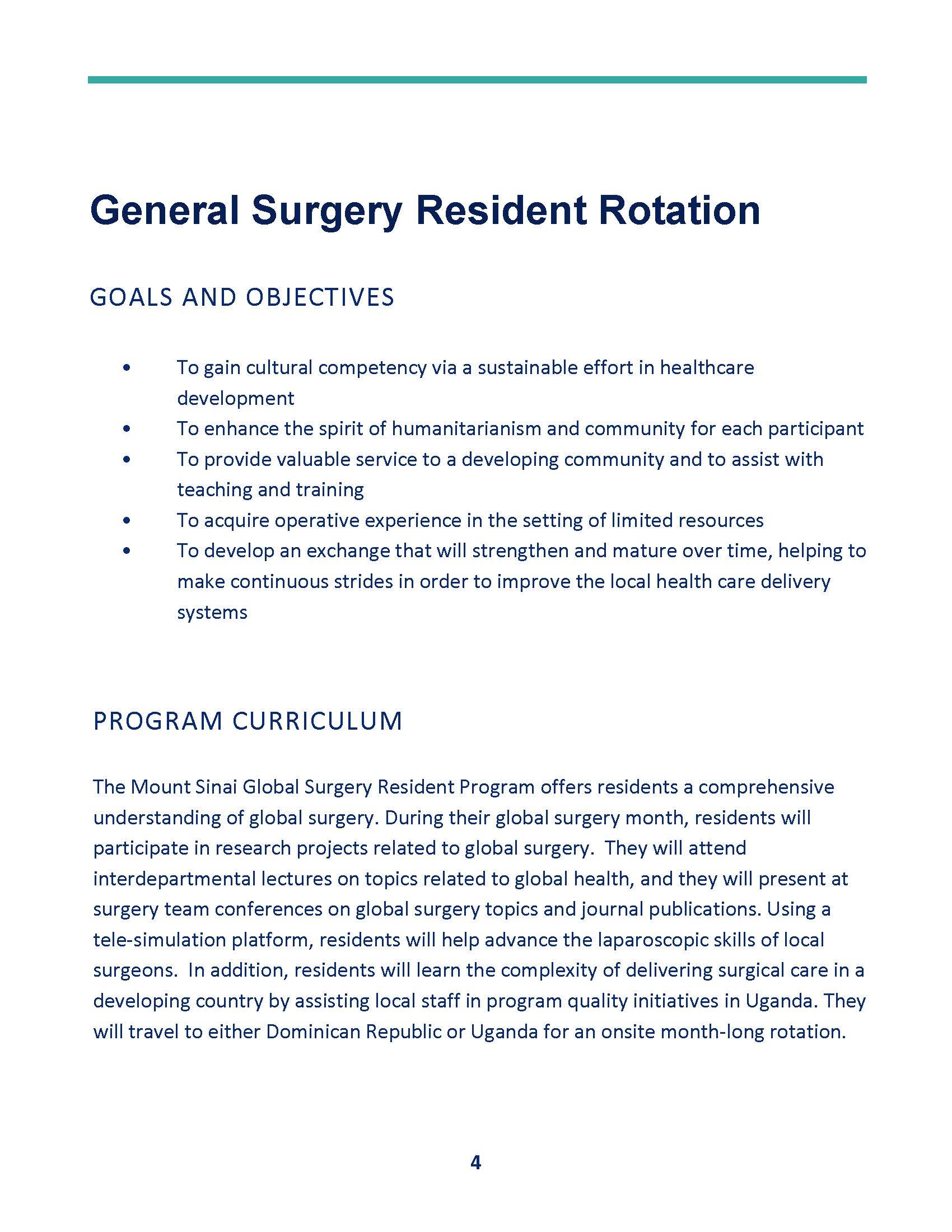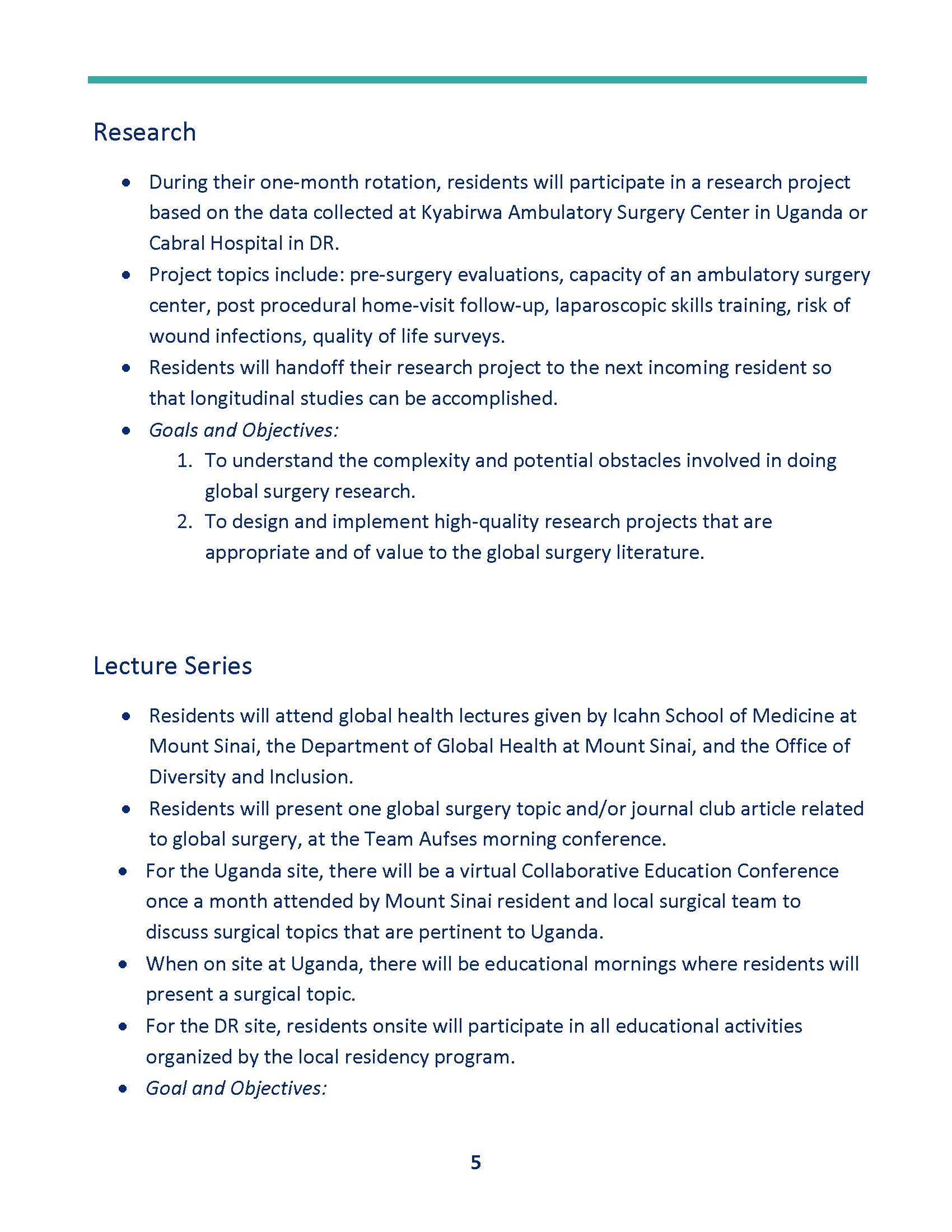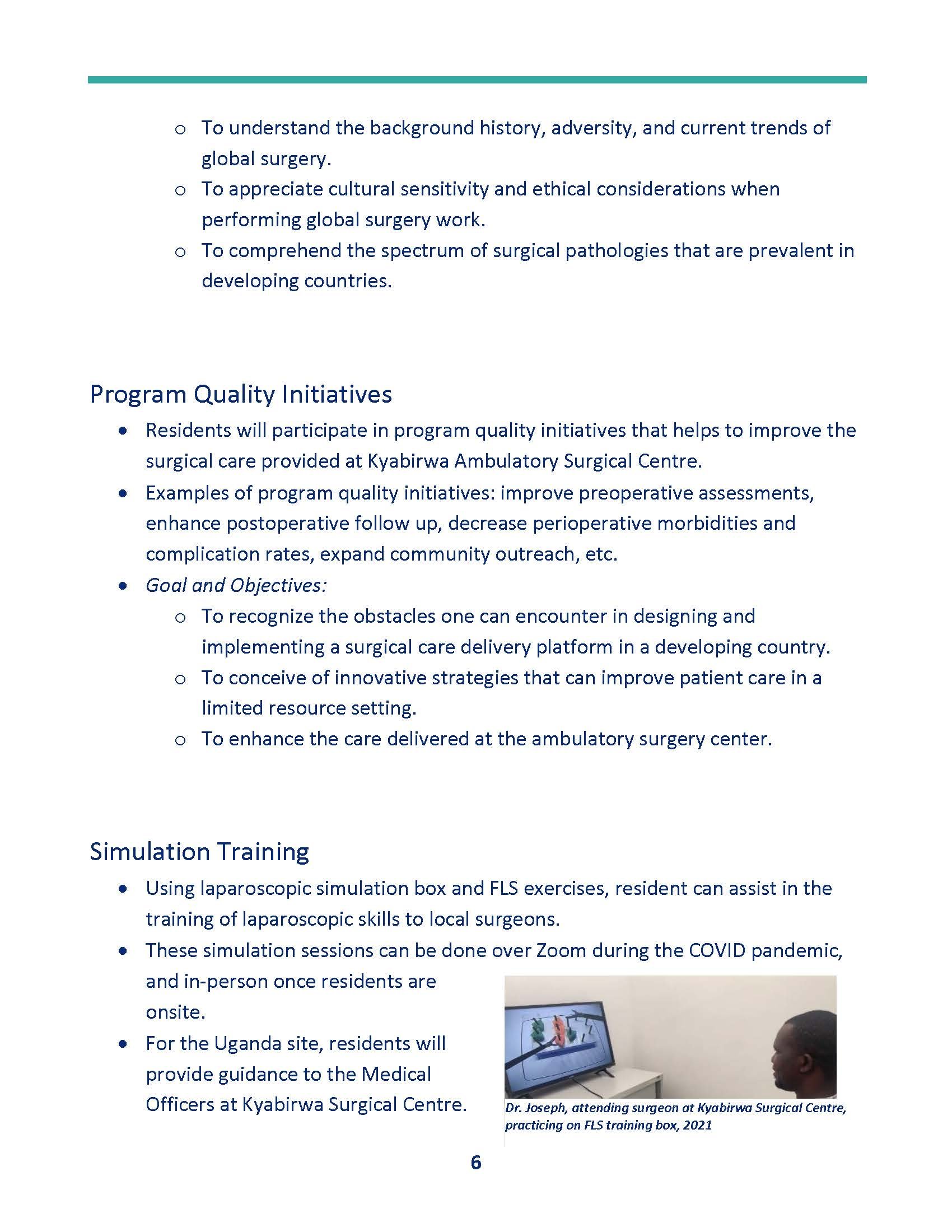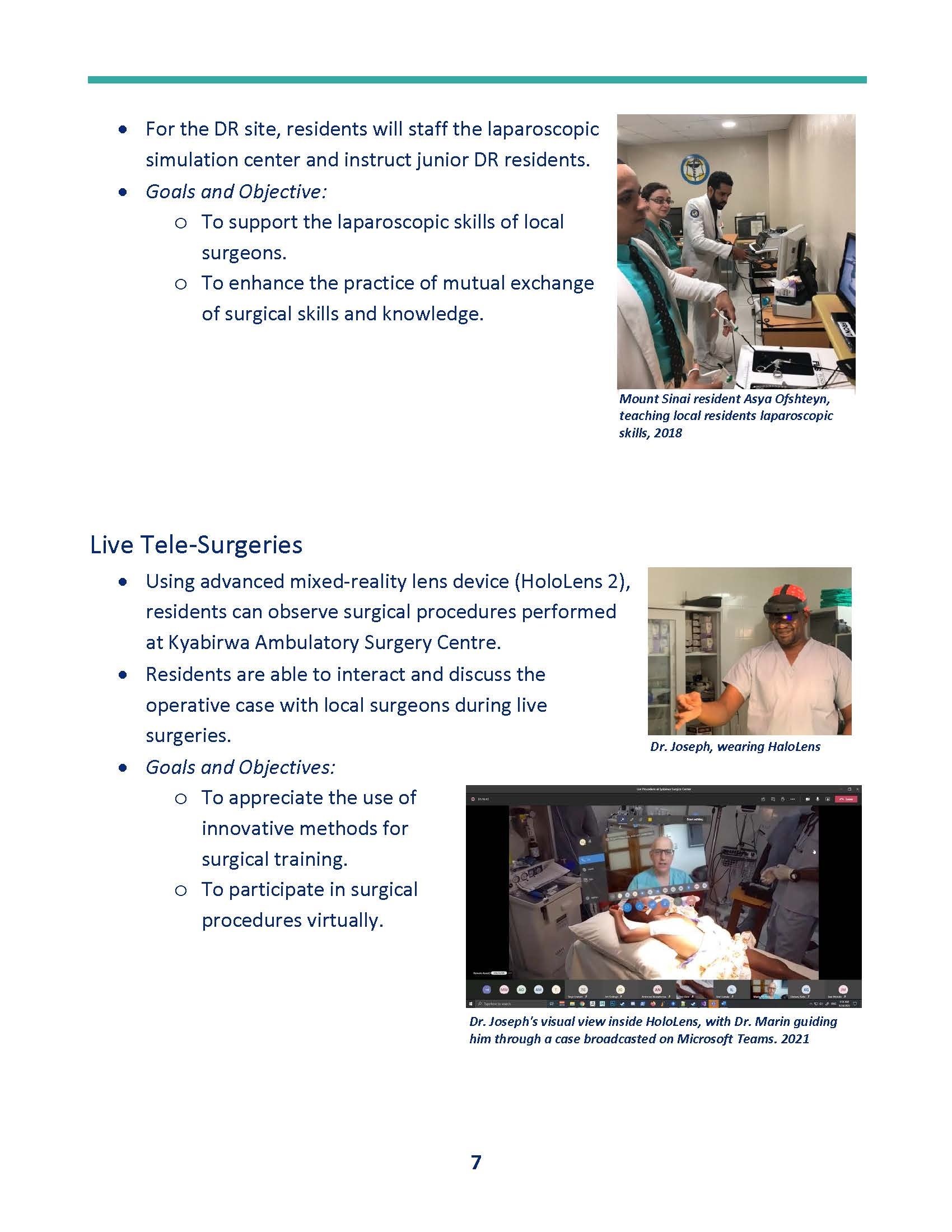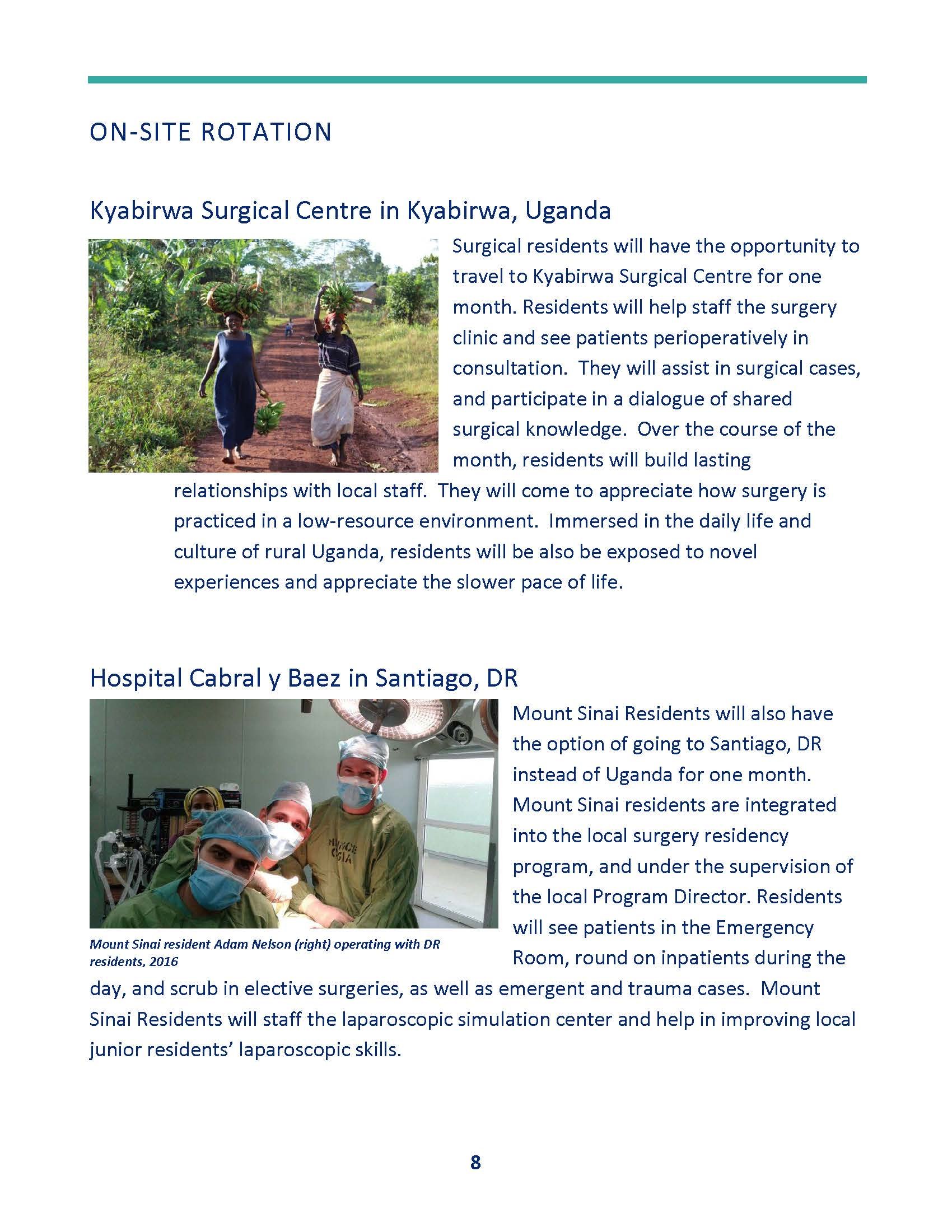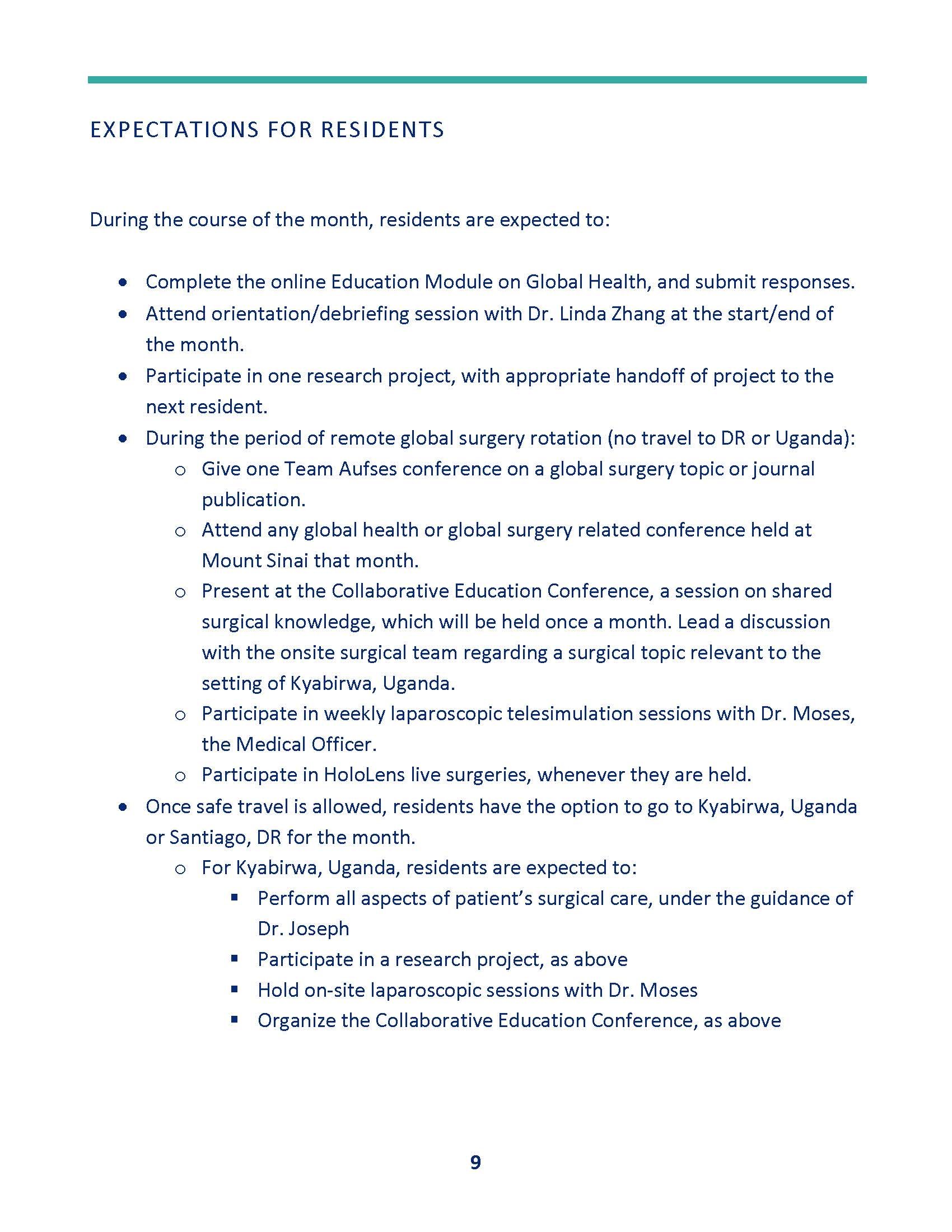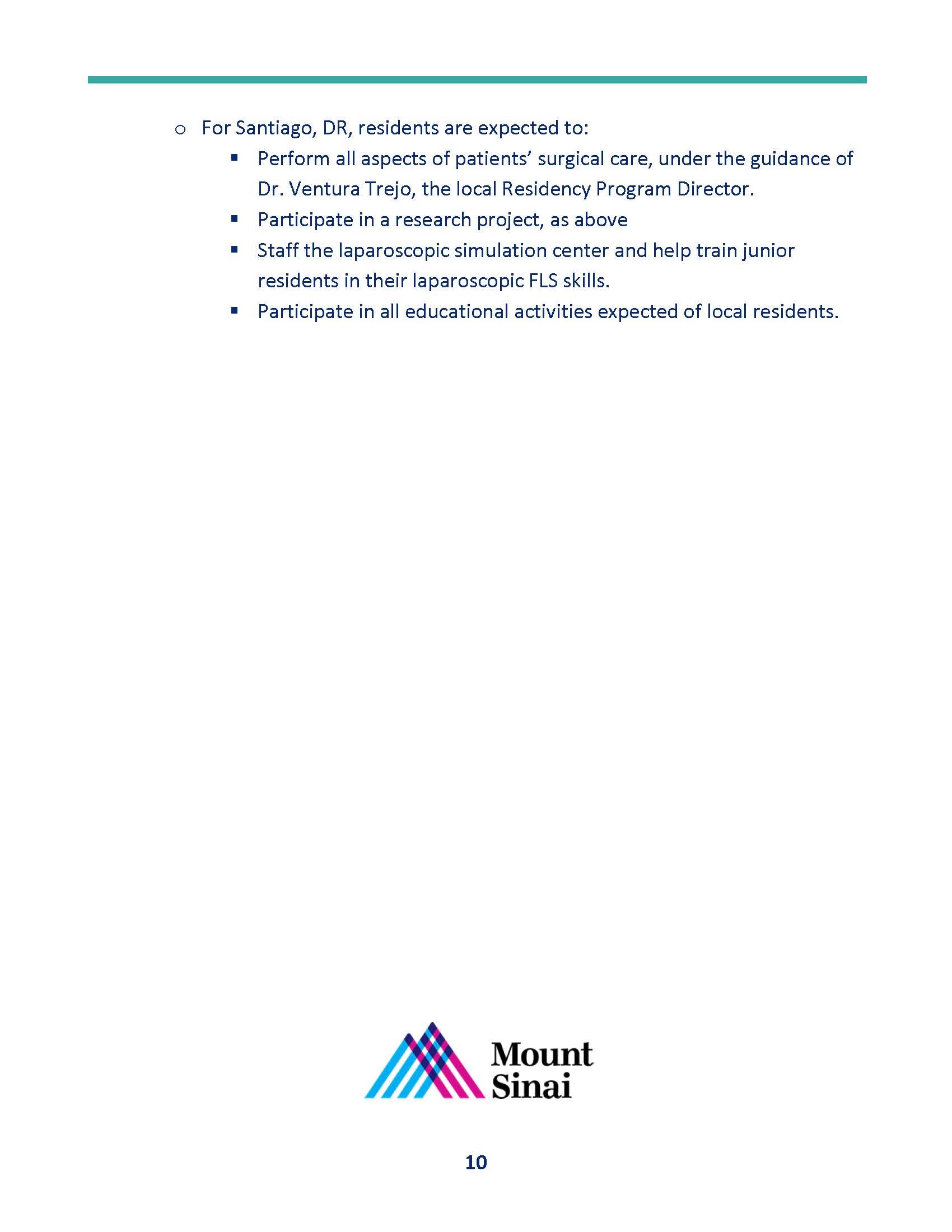Global Surgery Program
The Kyabirwa Surgical Facility in Uganda
More than 5 billion people worldwide do not have access to safe or affordable surgical care. That lack of care is responsible for upwards of 17 million deaths per year, meaning nearly 30 percent of the world’s population will die from diseases that are surgically correctible. Often, the most commonly cited reasons for not providing surgical care to underserved areas is cost and ease of operations; the practice of surgery and organization of providing surgical services is seen as too expensive and complicated to undertake.
The Mount Sinai Global Surgery Team, part of the Department of Surgery at Mount Sinai, is directly challenging those misconceptions with the Kyabirwa Surgical Facility (KSF), a first-of-its-kind ambulatory surgical facility in Kyabirwa, Uganda. The surgical care provided at the KSF completely reshaped how Kyabirwa residents and those in neighboring villages receive health care.
Research shows that 60 percent of all surgery done in the United States is ambulatory. Conversely, more than 80 percent of surgical costs are spent on in-patient procedures; the more complicated surgeries that require more refined surgical skills, equipment, and facilities. Considering this data, the primary focus of the KSF is to provide outpatient surgeries to the deeply underserved Kyabirwa community, where even the simplest of operations were once unavailable. Initial surgical procedures available at KSF include: hernia repair, appendectomy, breast disorder surgery, thyroid surgery, cataract removal, colonoscopy, wound management, burn treatment, oral surgery, circumcisions, hemorrhoid removal, abscess drainage, and biopsy of cancers. All of these operations can safely and effectively alter and preserve life. Over time, as experience, support and funding opportunities grow, surgical offerings may be expanded to include more complex procedures.
The KSF is a scalable prototype that has the potential to shift the paradigm for providing international surgical care. The self-sustaining structure has its own water and power sources, and will act as a major employer in the community it serves, being staffed by Ugandan surgeons supported by on-site teams from Mount Sinai.
Digital interface between KSF and the campuses of the Mount Sinai Health System will be an integral feature of the partnership. This technology will allow virtual, international interaction between surgeons and staff for pre-surgical evaluations, intraoperative consultations, real-time evaluation of ongoing surgical therapy, and assistance in the management of complications.
Global Surgery Resident Rotation Curriculum
Goals and Objectives
• Develop cultural competency through sustainable efforts in global healthcare delivery.
• Cultivate humanitarianism and community engagement among participants.
• Provide valuable services to underserved communities while assisting with education and training.
• Gain operative experience in resource-limited settings.
• Establish a sustainable exchange program to continuously improve local healthcare delivery systems.
Program Curriculum
The Mount Sinai Global Surgery Resident Program offers a comprehensive global surgery curriculum designed to enhance understanding and practical skills. Residents participate in hands-on surgical care and research projects during their one-month rotation in Uganda or the Dominican Republic.
Key Components:
• Surgical Practice: Residents engage in outpatient surgical procedures, gaining firsthand experience in resource-limited settings.
• Research Participation: Projects include pre-surgery evaluations, laparoscopic skills training, post-procedure home-visit follow-ups, wound infection prevention, and quality of life surveys. Research projects are handed off to subsequent residents to ensure continuity and enable longitudinal studies.
• Educational Sessions: Residents attend global health lectures, participate in journal clubs, and present on global surgery topics. For the Uganda site, collaborative education conferences and onsite morning educational sessions are tailored to address region-specific surgical issues.
Research Initiatives
Residents actively contribute to global surgery research, focusing on:
• Capacity-building in ambulatory surgical care.
• Enhancing patient outcomes through improved preoperative and postoperative protocols.
• Addressing local challenges such as wound infections and surgical education in limited-resource environments.
Research Goals:
1. Understand the complexities and barriers in conducting global surgery research.
2. Design and implement high-quality, impactful research studies for the global surgical community.
Program Quality Initiatives
Residents work on initiatives to enhance surgical care at the Kyabirwa Surgical Center, including:
• Improving preoperative evaluations.
• Reducing perioperative morbidity and complications.
• Expanding outreach and community engagement programs.
Objectives:
• Identify obstacles to designing and implementing surgical care platforms in underserved regions.
• Innovate strategies for improving care delivery in resource-constrained settings.
Simulation Training
• Residents utilize laparoscopic simulation boxes and FLS training models to enhance local surgical skills.
• Training sessions are conducted virtually or in person, depending on the circumstances. Onsite, residents guide local medical officers in laparoscopic techniques.
Live Tele-Training
• Advanced tele-simulation platforms connect residents with Mount Sinai experts for real-time guidance on surgical procedures.
• This includes pre-surgical planning, intraoperative consultations, and postoperative evaluations, ensuring the delivery of high-quality care and fostering international collaboration.
Not loading? Download the .pdf here!



